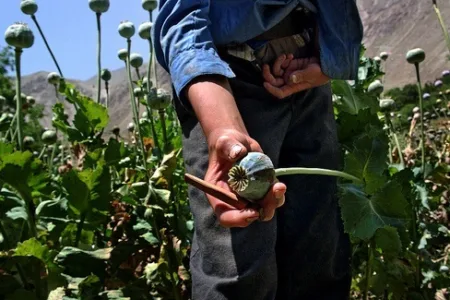Drugs, (dis)order and agrarian change: the political economy of drugs and its relevance to international drug policy

In May 2014 the School of Oriental and African Studies (SOAS) hosted a workshop, co-funded by NOREF and Christian Aid, designed to facilitate dialogue between scholars working on the political economy of drugs, conflict and development in Asia, Africa and Latin America. The workshop explored how political economy perspectives, derived from long-term empirical research on drugs-affected regions, can enhance understanding of, and policy responses to, drug production and trafficking. This approach, rather than seeing drugs as “exceptional” and “criminal”, seeks to situate the role of illicit economies within broader processes of state formation and agrarian change.
Contributions to the workshop revealed the highly differentiated and context-specific dynamics of drug economies, and how different configurations of institutions and security markets can lead to different kinds of relationships between drugs, statebuilding, agrarian change and development. This research does not lend itself to simple policy narratives or prescriptions, but it does suggest that there can be no universal and de-contextualised solutions to “the drug problem”. Dogmatic and irreconcilable positions, adopted by both those advocating harsher prohibition and those arguing for blanket decriminalisation, fail to reflect sufficiently on the impacts such policies will have on drug-producing countries. A more grounded, comparative perspective is urgently needed in an arena where policies are often anything but evidence based and where data are patchy or politicised. Counter-narcotic (CN) strategies, based on a reification of the perceived linkages between drugs, instability and state fragility, often provide only a partial, and in some cases deeply misleading, insight into the economic and political orders that emerge around drug production.
Political economy provides a corrective to these deeply entrenched biases and blind spots, by incorporating an analysis of aspects of drug economies and counter narcotics (CN) strategies that are frequently treated as residual or circumvented, including the varying levels and types of violence surrounding drug economies; the complex motives of those involved in drug production and trafficking; the linkages between licit and illicit commodities in processes of agrarian transformation; the potential developmental outcomes of drugs economies; the relationship between illicit economies and differing configurations of authority and rule; and a socially differentiated account of who gains and who loses from counter-narcotics policies. In doing so, political economy approaches provide a powerful analytical lens for developing a more contextually attuned public policy on drugs.